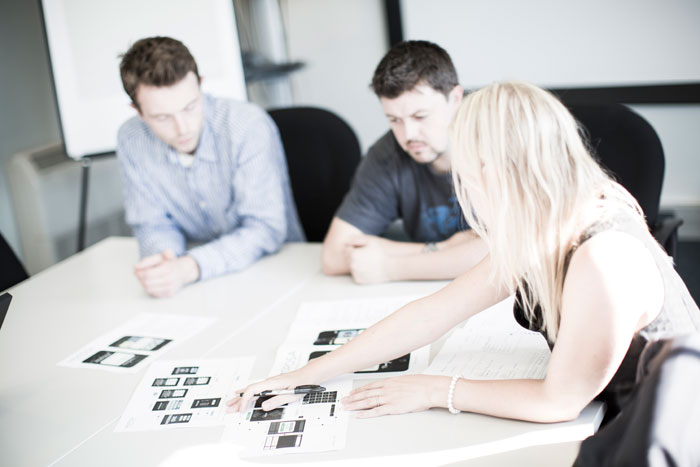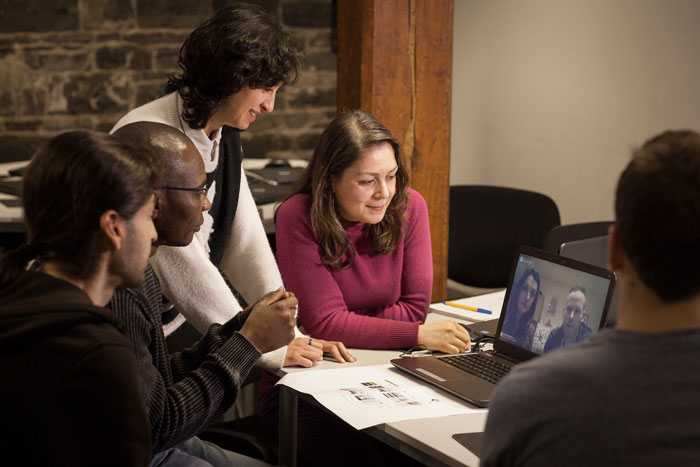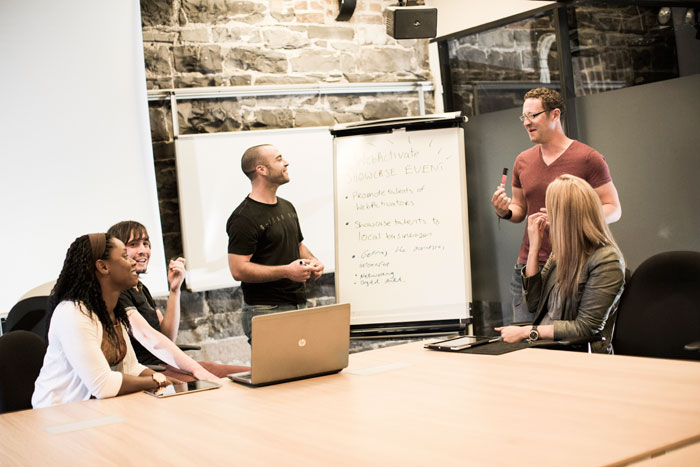 An Interview with Dominic Martin, coaching coordinator at Digital Skills.
An Interview with Dominic Martin, coaching coordinator at Digital Skills.I worked in two multinational banks, in training, business analysis and project management. I then wanted to try new things and worked in the energy and sports sectors. Finally, I pursued a career in coaching and training, which is my real passion.
I am the coaching coordinator. The overall objective of coaching is to improve the performance of our international teams collaborating on digital projects. We have six coaches and my role is to ensure that we provide the best possible coaching service to the participants. In practice this involves preparing for our coaching sessions, helping the teams perform better and continually looking for ways to help participants overcome challenges.
As you probably know there are lots of different types of coaching. Our focus is on team coaching. We try to unlock people’s potential to maximise their own performance. Every individual is motivated to achieve their full potential and everyone has something valuable to contribute. The teams need to function in a way that allows this to happen. Coaching helps the teams to perform better and in doing so realise their full potential.
We don’t tell people what to do. We just ask powerful and relevant questions. Asking someone a question values them and their answer. In the coaching sessions we try to understand what the challenges are from the team perspective. In that way we help them become more aware of what is really going on and then to take action based on their increased awareness.

With assignments and learning experiences, if you’re in a team with good dynamics, then the learning experience will be excellent. You can learn from each other and support and encourage each other on your learning journey. But where the team experience isn’t optimal, then this can overflow into individual assignments. Therefore we aim to check-in with the teams regularly and try to detect early signs of team dysfunction and to coach the teams through their challenges.
Our experience and research of online teams has shown that success is down to factors such as keeping perspective and focus, clear and regular communication, building relationships and trust, being accountable and giving regular recognition to each other for a job well done. All too often teams focus exclusively on the detail of the task and ignore how they interact and engage with each other. So you could say that it is less about defining functional and non-functional requirements and more about the functioning of the team!
It’s been very interesting. The international participants tend to be highly motivated individuals with a track record of achievement. They bring a significant amount of experience and insight to the programme. This is clearly evident when participants share their views on team performance issues during our coaching sessions.
The teams develop a Team Charter which reflects how they want to operate as a team and what they want to achieve. Their objectives tend to go beyond achieving high marks to include personal goals and successfully completing the project. Coaching helps to ensure that the team does not lose sight of the intentions set out in the Charter, particularly when challenging deadlines loom and the pressure comes on.

We reference research and our experience in coaching to help teams meet challenges and deliver projects successfully. Good communication is important in every team but for online teams it is paramount.
There can also be very strong personalities. Coaching helps the teams to understand that it is a team effort and that the best approach is to lead others through persuasion, not by force. We encourage teams to rotate leadership type tasks and to use the projects as an opportunity to learn and develop leadership skills.
Coaching sessions are conducted through Google Plus Hangouts and generally last 15 minutes. We check in with the team during the coaching session. When there are no immediate team issues, we then might do something on a relevant area such as getting to know each other (particularly important in the early stages), exploring team values, decision making, recognising contribution or dealing with conflict.
We encourage teams to fully utilise the Digital Skills resources available to them including Lecturer and Project Forums, Live Syncs and contacting Participant Experience. These are the recommended first line contact points for teams on course content related queries and participant challenges. The coaching sessions are a second line of contact and most importantly, provide a friendly and encouraging face which the teams really welcome.

The International programme includes learning on leadership, management and project management. Coaching re-enforces this learning and in doing so increases the application of learning to the team projects.
Coaching provides a safe environment for teams to raise and explore issues which are impacting the functioning of the team. In this way issues can be dealt with rather than staying under the surface and remaining unresolved. Dealing with challenges is a sign of progress in team development.
Many large corporates have recognised that if they are to improve team performance, their managers and team leaders need to adopt a coaching based management style. This shifts the traditional approach of management from one of authority and control to one of committed and responsible partnership. Our approach gives participants a glimpse of what is involved in adopting this particular style.

Ultimately though team coaching is about team performance and the results that the teams achieve in their assignments. If all the other benefits were achieved but the teams failed in achieving their desired results then coaching has failed. Thankfully, so far the results have been excellent and the coaching feedback has been highly positive.
Did I mention communication? Joining online meetings on time and then having an open and honest discussion around decisions, plans and progress provides the platform for success. Oh yes – Saying well done before jumping to the next task is also just so important. But I suppose that is communication too!!!